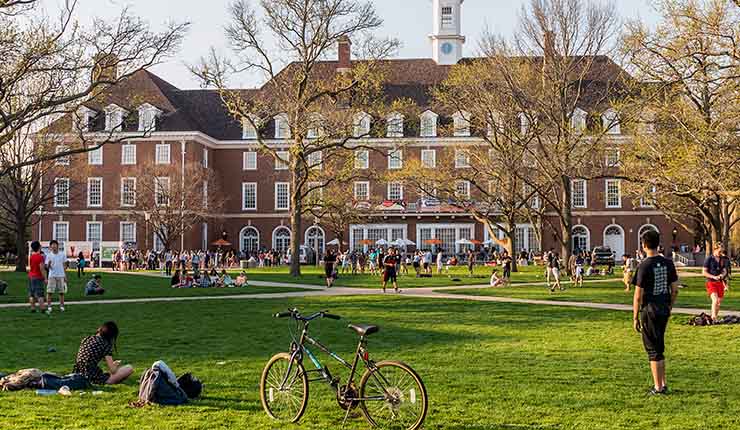Universities are traditionally known as institutions of higher learning, where students acquire knowledge and skills to prepare them for the workforce. However, their impact extends far beyond just education. Universities play a significant role in shaping society in various ways, including driving economic development, fostering innovation, and contributing to cultural and social well-being. This article explores the broader contributions that universities make to society and why they are essential institutions for community development.
1. Research and Innovation
One of the primary roles of universities is to advance knowledge through research. Universities are hubs of innovation, where groundbreaking research leads to new technologies, medical breakthroughs, and solutions to societal challenges. Many universities have specialized research departments that focus on fields such as science, engineering, medicine, and the arts.
- Scientific and Technological Advancements: Universities are often at the forefront of scientific discovery. For instance, research in universities has led to the development of new vaccines, treatments for diseases, and innovations in fields like renewable energy and artificial intelligence.
- Collaboration with Industry: Universities also collaborate with industries and businesses, translating academic research into practical applications. This collaboration fosters innovation that can drive economic growth and create new markets.
- Entrepreneurship: Universities foster an entrepreneurial environment by supporting student startups, providing access to funding, mentorship, and incubators. Many successful companies, particularly in the tech industry, were founded by university researchers or alumni.
2. Economic Contributions
Universities are significant contributors to the economy. They not only generate income through tuition fees but also create employment, attract investment, and support local businesses.
- Job Creation: Universities employ a large number of people, including faculty, staff, and researchers. Additionally, the academic sector supports a wide range of ancillary jobs, from administrative staff to campus maintenance workers.
- Economic Impact on Local Communities: Universities are vital economic drivers for their local communities. They attract students from around the world, contributing to the hospitality, retail, and housing sectors. University-related tourism, including conferences and cultural events, also adds to local revenue.
- Workforce Development: Universities prepare students for the workforce by providing them with specialized knowledge and skills. Graduates often contribute significantly to their industries and communities by filling high-demand positions.
3. Cultural and Social Contributions
Universities also play an important role in preserving and promoting cultural and social values. Through academic programs, social initiatives, and community engagement, universities help shape the identity of societies and foster understanding across different cultures.
- Cultural Preservation and Diversity: Many universities have programs dedicated to preserving cultural heritage, including studies in history, language, and the arts. Universities also provide a platform for students from diverse backgrounds to come together and share ideas, fostering cultural exchange.
- Social Change and Advocacy: Universities are often centers of social change. They have historically been at the heart of major movements, from civil rights advocacy to environmental activism. Students and faculty work together to address social issues and advocate for reforms in areas like social justice, climate change, and equality.
- Community Engagement: Universities are frequently involved in community outreach programs, offering services such as tutoring, healthcare clinics, and legal aid. Many universities have partnerships with local organizations to improve social welfare and address community needs.
4. Global Perspective and International Relations
In today’s interconnected world, universities contribute to fostering global awareness and international relations. Students from various countries and cultures come together at universities, creating a diverse and inclusive environment.
- Study Abroad Programs: Universities offer students opportunities to study abroad, which helps broaden their perspectives, understand different cultures, and develop international networks. These programs foster global citizenship and create future leaders with a global mindset.
- International Collaboration: Universities collaborate with institutions around the world on research, development projects, and educational exchanges. These partnerships promote the exchange of knowledge and help address global challenges, such as public health crises, climate change, and technological development.
- Global Alumni Networks: University alumni networks span the globe, creating professional connections that support economic and social progress in various countries. These networks often facilitate collaboration and investment across borders, benefiting economies worldwide.
5. Public Policy and Advocacy
Universities influence public policy by providing expert analysis and recommendations on a range of issues. Faculty members often engage in public discourse, offering research-based insights that can shape government decisions.
- Policy Research and Advocacy: University researchers contribute to the development of public policies by conducting studies that inform policy decisions on topics like education, healthcare, the economy, and social welfare. Their research provides evidence that policymakers use to craft laws and regulations.
- Political Engagement: Universities are also platforms for political engagement and debate. Students and faculty engage in discussions on important social issues, often leading to the formation of political movements that advocate for societal changes.
Conclusion
While universities are primarily known for providing education, their contributions to society extend far beyond the classroom. Universities foster innovation and research, contribute to economic development, promote cultural exchange, and influence public policy. They are integral to the progress of society, helping to address some of the world’s most pressing challenges while also shaping the future through education and global collaboration. As such, universities remain essential institutions for community development and societal advancement.

